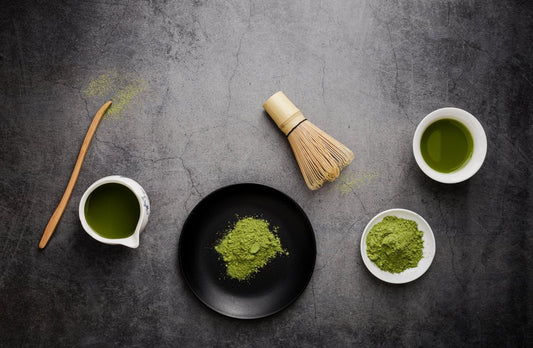The Allure and Tradition of Jasmine Tea
There is something enchanting about the aroma of jasmine flowers, and when combined with the delicate flavours of tea leaves, it creates a beverage that is both soothing and refreshing. Jasmine green tea has been consumed for centuries in China and is now enjoyed throughout the world for its fragrant taste and numerous health benefits. In this blog post, we will take you on a journey through the history and culture of jasmine tea, explore the production process, and share some tips on how to brew your perfect cup.
The Historical Roots of Jasmine Tea: From Fujian to the World
Originating in China during the Song dynasty, jasmine tea has been a significant part of Chinese tea culture for over 800 years. It is widely believed that it was first produced in the province of Fujian, where the flowers of the jasmine plant were harvested and blended with green tea leaves. The practice soon spread throughout China, and jasmine tea became a symbol of hospitality, served to guests as a gesture of friendship and respect. Today, jasmine tea is produced in many countries, including Taiwan, India, and Sri Lanka, but China remains the principal exporter.
The Craftsmanship Behind Jasmine Tea: A Focus on Freshness
One of the most critical factors in the production of jasmine tea is the freshness and quality of the jasmine blossoms. The best flowers are picked in the morning while still closed, so they don't lose their fragrance. They are then spread over the tea leaves to impart their aroma and flavour. The process is repeated up to seven times until the tea is infused with the desired fragrance. The most popular variety of jasmine tea is made with green tea, but it can also be blended with black, white, or oolong tea.
Health Benefits: More Than Just a Delicious Sip
Jasmine tea not only tastes delicious but also offers numerous health benefits. It is a rich source of antioxidants, which can protect the body from harmful free radicals. It is also known to have calming properties, making it an ideal beverage to help reduce stress and anxiety. Additionally, jasmine tea is said to help support digestive health and boost the immune system.
Brewing Tips: Crafting Your Perfect Cup
When it comes to brewing jasmine tea, there are a few essential tips to follow. Start by selecting high-quality loose-leaf tea and filtered water. Heat the water to around 80°C for green tea and 100°C for black tea. Add one teaspoon of tea per cup of water and steep for 2-4 minutes, depending on your preference. Overbrewing jasmine tea can result in a bitter taste and overpowering aroma. If you prefer a stronger flavour, you can add fresh jasmine blossoms to the tea while it is steeping.
Conclusion: The Lasting Charm of Jasmine Tea
In conclusion, jasmine tea is a beverage that mesmerizes and delights. The fragrance and delicate taste of jasmine blossoms blended with tea leaves create an unforgettable experience. Whether you prefer it hot or iced, jasmine tea is a perfect beverage for enjoying throughout the day. We hope this journey through the history and culture of jasmine tea has left you inspired to enjoy a cup of this sublime beverage, and we invite you to explore the world of jasmine tea further and find your perfect blend.




